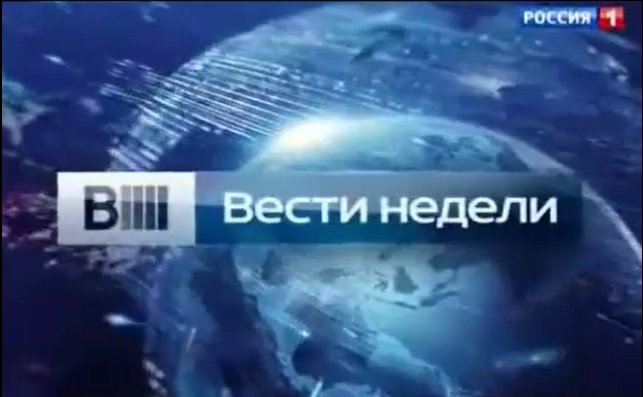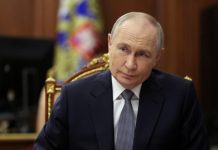The idea of censorship on Russian television misses the point. When it comes to reporting, loyalty takes precedence.
Since the onset of the Ukraine conflict, Russia’s main television channels have puzzled the world with their ability to convince viewers of stories which are diametrically opposed to those shown in the west. This situation is usually associated with propaganda, government control and censorship. If not censorship, then it must be at least self-censorship that muffles any voice critical of Putin’s activities in eastern Ukraine or new ideas of how to deal with gays in the country. But what if those who produce television news and programmes are happy just to go along with everything?
The Putin taboo
The idea that images broadcast by Russian television are initiated by the Presidential Administration and imposed coercively onto reporters is too simple and, in many aspects, inaccurate. My research into the editorial policies of Russian television channels suggests that reporters’ claim to enjoy fairly unlimited freedom in their journalistic practice might well be true. There is, however, one highly censored topic everybody agrees on: one must not report negatively about Vladimir Putin or critically assess his work.
The state-aligned television channels hire entire teams of special reporters to manage Putin’s news agenda, and all the channels have succumbed to this informal intervention. For instance, one private television channel that occasionally resorts to cautious criticism has replaced the word ‘President’ with its close (and natural-sounding) counterpart vlast’, which means ‘power’ or ‘authority’, in its news reporting.
Everybody agrees on one thing: you must not report negatively about Vladimir Putin or critically assess his work.
Apart from that, ‘everything goes,’ insists a journalist from NTV, a privately owned television channel with strong links to the Kremlin. This freedom of expression is often explained by Russia’s geography and size. A programme is first broadcast in the Far East; and nobody watches it. First, the population there is small. Second, many don’t even have a TV set. And if the regional or central authorities take umbrage at a certain programme, it is simply taken off air.
Adekvatnost’
There are, no doubt, more complex mechanisms for ensuring informational discipline and loyalty among journalists. For example, the main trait required for reporters looking to work at a federal television channel is adekvatnost’. Translated literally as ‘adequacy,’ adekvatnost’ means the ‘right’ instinct combined with the capacity to judge matters appropriately (as well as no small amount of guile). One reporter from Channel 1, Russia’s main state-owned television channel, defined adekvatnost’ as ‘the ability to react appropriately to the conditions in which you find yourself.’
Reporters are expected to understand the specific character of their job and avoid breaking certain unwritten laws. In this sense, adekvatnost’ is an expression of professionalism. ‘If you are cultured and educated, you can easily find your way,’ the same NTV reporter asserts. One is free to propose whatever one likes. ‘If you present it appropriately [adekvatno], there is no problem.’ The main thing is that programmes entertain the viewers and receive high ratings. What helps to smooth this potential conflict over is that most reporters’ views do not run counter to their editorial policies. Once a reporter’s loyalty is proven, they may well be granted great freedom in their work.
Showing off has its perks
Unexpected and rapid political changes, however, can make adekvatnost’ more challenging. A reporter often has to figure out what is ‘appropriate’ at a particular moment in time, potentially leading to insecurity and an overly cautious approach. But censorship and self-censorship risk make reports dull and boring.
The fact that television channels need to sustain viewers’ interest in the programmes means that management sometimes has to give in to the bold, vain and erratic nature of their most famous television anchors, hosts and pundits, whose showmanship and occasionally radical views are crucial for keeping the audience entertained, and viewer ratings up. Television reports and talk shows reveal at least as much, if not more, of a media personality’s or reporter’s personal characteristics than of explicit political pressure and interference. These individuals cannot be controlled, which is not really an issue as most of them are very loyal. Most of Russia’s major free-thinking media personalities disappeared from television screens in the course of the last decade. The remaining ones and the newcomers see themselves as important agents of ensuring stability in the country.
Editorial policy
Dmitry Kiselyov, the head of the state-owned news agency Rossiia Segodnia, explained to me that the principles of freedom of opinion and diversity are important aspects of his Sunday news bulletin on Rossiia, the second most important television channel: ‘Our reporters represent a wide range of views and political opinions. We have conservatives, and we have liberals. I am myself am an enlightened conservative, a moderate conservative.’ Kiselyov’s logic of tolerance of political diversity is straightforward: it ends where political views depart from those endorsed by the current regime and, in particular, Putin.
‘If I put my money into a channel or a newspaper, why should I be forced to like everybody?’
The rationale here is clear and simple. If a media personality and reporter does not agree with the editorial policy of one media organisation, he or she is free to change to another organisation. If the state invests money in a media outlet, it has the right to demand that the outlet follows the state’s policy. For example, prominent Channel 1 journalist Maxim Shevchenko ferociously defends the governance of the main state channel: ‘There is no self-censorship. We have a normal editorial policy. It’s not any different to what a reporter from the Frankfurter Allgemeine or the Austrian paper Kurier experiences… If I put my money into a channel or a newspaper, why should I be forced to like everybody?’
Apostles of power
The closer one is to the centre of decision-making, the greater the freedom you have to speak freely and disseminate ideas without being censored. Well-known media personalities are part of the process of news production. Many of them perceive themselves as far more than simply reporters, pundits or anchors: they serve the country by being media professionals, educators and politicians all at once.
‘I act as God, as Jesus Christ. On television, I have the role of the creator.’
For example, Dmitry Kiselyov sees his role far beyond the task of news making: ‘I act as God, as Jesus Christ. On television I have a role of the creator. This is not because I want it. This is because only 20 years have passed since the end of the Soviet era.’ References to the West often serve to legitimise this missionary vocation: ‘If English reporters found themselves in such a situation, they would have done the same [as us]. 100%. We are obliged to colonise our own country, and the English are excellent colonisers. They imposed their values in many parts of the world.’
Tight control of political news
The freedom to hold views that diverge from those of the government usually implies that you are not involved in broadcasting political news. Reporters who claim not to have experienced any direct interference or any instructions to cut out parts of reports or withdraw them, usually cover issues other than politics. Everything outside of politics is less sensitive, which allows them much greater freedom.
The rule of the game, however, is that if a reporter is keen to report on political topics (which will involve direct promotion of Kremlin positions), he or she will be well aware of the limitations, and will choose this path consciously and deliberately. Such is the flexible nature of media control in Russia today. It does not require coercive mechanisms; and still affords reporters creative freedom. This is not to imply that all reporters are cynics, but rather political journalists know and understand their role in the game. Those who are happy to play, play a careful hand.
By , Open Democracy.





